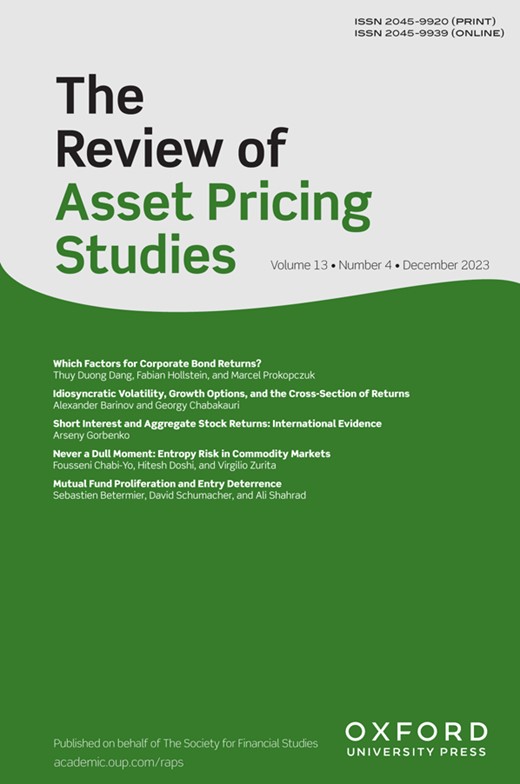学习,快还是慢
IF 1.5
Q2 BUSINESS, FINANCE
引用次数: 19
摘要
理性模型声称“交易学习”解释了普遍存在的过度投机交易,并对过度交易的行为解释提出了挑战。通过对台湾日内交易者的研究,我们认为理性学习模型并不能解释投机交易。与之前的学习研究一致,不赚钱的日内交易者比赚钱的交易者更有可能退出。与过度自信和有偏见的学习模型(而不是理性学习模型)一致,日内交易者的总体表现为负;74%的日交易量是由有亏损历史的交易者产生的;97%的日内交易者可能在未来的日内交易中赔钱。收稿日期:2019年3月4日;编辑决定:2019年5月16日,编辑:Jeffrey Pontiff。作者们提供了一份互联网附录,可以在牛津大学出版社的网站上找到,就在最终发表论文的链接旁边。本文章由计算机程序翻译,如有差异,请以英文原文为准。
Learning, Fast or Slow
Rational models claim “trading to learn” explains widespread excessive speculative trading and challenge behavioral explanations of excessive trading. We argue rational learning models do not explain speculative trading by studying day traders in Taiwan. Consistent with previous studies of learning, unprofitable day traders are more likely than profitable traders to quit. Consistent with models of overconfidence and biased learning (but not with rational learning), the aggregate performance of day traders is negative; 74% of day trading volume is generated by traders with a history of losses; and 97% of day traders are likely to lose money in future day trading.
Received: March 4, 2019; Editorial decision: May 16, 2019 by Editor: Jeffrey Pontiff. Authors have furnished an Internet Appendix, which is available on the Oxford University Press Web site next to the link to the final published paper online.
求助全文
通过发布文献求助,成功后即可免费获取论文全文。
去求助
来源期刊

Review of Asset Pricing Studies
BUSINESS, FINANCE-
CiteScore
19.80
自引率
0.80%
发文量
17
期刊介绍:
The Review of Asset Pricing Studies (RAPS) is a journal that aims to publish high-quality research in asset pricing. It evaluates papers based on their original contribution to the understanding of asset pricing. The topics covered in RAPS include theoretical and empirical models of asset prices and returns, empirical methodology, macro-finance, financial institutions and asset prices, information and liquidity in asset markets, behavioral investment studies, asset market structure and microstructure, risk analysis, hedge funds, mutual funds, alternative investments, and other related topics.
Manuscripts submitted to RAPS must be exclusive to the journal and should not have been previously published. Starting in 2020, RAPS will publish three issues per year, owing to an increasing number of high-quality submissions. The journal is indexed in EconLit, Emerging Sources Citation IndexTM, RePEc (Research Papers in Economics), and Scopus.
 求助内容:
求助内容: 应助结果提醒方式:
应助结果提醒方式:


